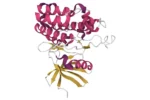● Resetting Pineal Disturbances:
Studies with monkeys involving Epitalon peptide resulted in a notable increase in plasma concentrations of melatonin in the animal subjects, apparently impacting the sleep/wake cycle of the animals. The same studies reported no apparent impact on underdeveloped (young) monkeys, only on the physiologically mature and elderly monkeys.
● Inhibition of Rapid Aging:
Epitalon peptide tested in different animal species suggested its potential impact on cell aging. It reportedly decreased the mortality rate by 52% in melanogaster species of fruit fly. The reduction was reported to be a similar 52% in rats and 27% in mice. Research hinted that the antioxidant potential of this peptide may have also contributed to a longterm impact on the lifespan of these three animal species.
Studies suggested the long-term action of Epitalon peptide on elderly research models in particular. Notable findings included reduced loss of physical endurance and decelerated cell aging in the cardiovascular system. An improved metabolic rate, and enhanced melatonin production was also noted in the study findings. The peptide appeared to induce a decrease in the number of lymphocytes and increased neutrophils in the elderly age group. Adequate melatonin may stop the early release of alkaline phosphatase (ALP). Higher ALP, conversely, has been linked to accelerated cell aging. A lower level of ALP may indicate a decline in the aging process.
● Impact in Leukemia:
Studies on Epitalon peptide found that it appeared to have inhibited the progression of leukemia in the testing group compared to the control group. It did not appear to influence spontaneous tumor cells but may have helped reduce the instances of spread.
● Induction of Telomere Activity:
Science purports that cells cannot give rise to newer cells after completing their 64 divisions. DNA contains a telomere protein, which is present at its ends. When a cell divides, the telomere appears to become attached to the new partition, and it may continue to decrease in length. The continued division and shortening of telomeres has been linked to apoptosis, or cell death. In studies, Epitalon peptide peptide reportedly triggered the telomere activity and researchers indicated that it may have increased its size to overcome the cell division limit.
● Activated Chromatin:
Chromatin appears to perform the function of packaging DNA into small volumes. This function appears to support a fit of DNA into the nucleus and may provide structural protection against damage. This packed DNA may allow for division, prevent chromosomes from breakage, and support DNA replication. Epitalon peptide, researchers assert, may potentially activate certain ribosomal genes. This activation appears to suppress the condensation of chromatin to maintain an active status.
Disclaimer: The products mentioned are not intended for human or animal consumption. Research chemicals are intended solely for laboratory experimentation and/or in-vitro testing. Bodily introduction of any sort is strictly prohibited by law. All purchases are limited to licensed researchers and/or qualified professionals. All information shared in this article is for educational purposes only.






